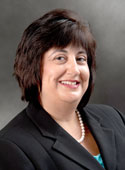By Angela Rocheleau
Americans 65 years and older will quadruple in the next three decades. With this expected population growth many of us will be faced with primary or secondary caregiving for a loved one in the upcoming years.
 Research reveals that family members provide nearly 82 percent of the necessary care for a senior family member. Oftentimes there is one primary caregiver. This person is most frequently the child/children or spouse. There may also be a secondary group of individuals offering support to the senior and the primary caregiver. They could be extended family members, as well as friends.
Research reveals that family members provide nearly 82 percent of the necessary care for a senior family member. Oftentimes there is one primary caregiver. This person is most frequently the child/children or spouse. There may also be a secondary group of individuals offering support to the senior and the primary caregiver. They could be extended family members, as well as friends.
Often, the amount of caregiving increases with little warning as illness or disability progresses in an elderly family member. Along this journey of caring also comes a wide range of emotions and circumstances that the caregiver may experience, including emotional and physical fatigue, concern over end of life issues, misunderstanding the course of the illness, anger towards the senior, social isolation, sadness and grief.
If you take on the caregiver challenge remember to:
•Reward yourself with respite breaks often. Caregiving is a job.
•Watch out for signs of depression, and don’t delay in getting professional help when you need it.
•Accept offers for help and suggest specific things people can do.
•Educate yourself about your loved one’s condition and how to communicate effectively with doctors.
•Trust your instincts. Most of the time they’ll lead you in the right direction.
•Grieve for your losses, and then allow yourself to dream new dreams.
•Stand up for your rights as a caregiver and a citizen.
•Seek support from other caregivers. There is great strength in knowing you are not alone.
There are numerous private, community and government sponsored resources for seniors and their caregivers. Home delivered meals (often called Meals on Wheels), adult day care centers, group living facilities, multicultural centers, religious programs, geriatric social workers and home health care agencies are examples. AARP, the National Council on Aging, the local community senior and cultural centers also provide resources.
Hiring private duty home care helps normalize family relationships. Most families and patients appreciate the in-home caregiver taking over tasks such as bathing and incontinence care, which helps preserve the patient’s sense of dignity and privacy.
With the professional caregiver taking over many care tasks, family have more time for their own needs. They are more likely to be mindful of their own nutrition and exercise.
Whether across the country or just in another room, family members feel much less anxiety knowing a competent caregiver is on hand to watch out for their loved one.
Taking on the challenge of caregiving for an aging individual can be highly rewarding. It may strengthen relationships among family members with numerous opportunities to work together. It is an opportunity to express love and appreciation for the support the senior has given you. Take good care of them. And take great pride in yourself, your family and friends.
Angela Rocheleau has 25 years of experience in the home health care industry focusing on leadership roles for the past two decades. She serves on the Better Business Bureau board of Central New England and the Executive Board of the Mass Council for Home Care Aides.












